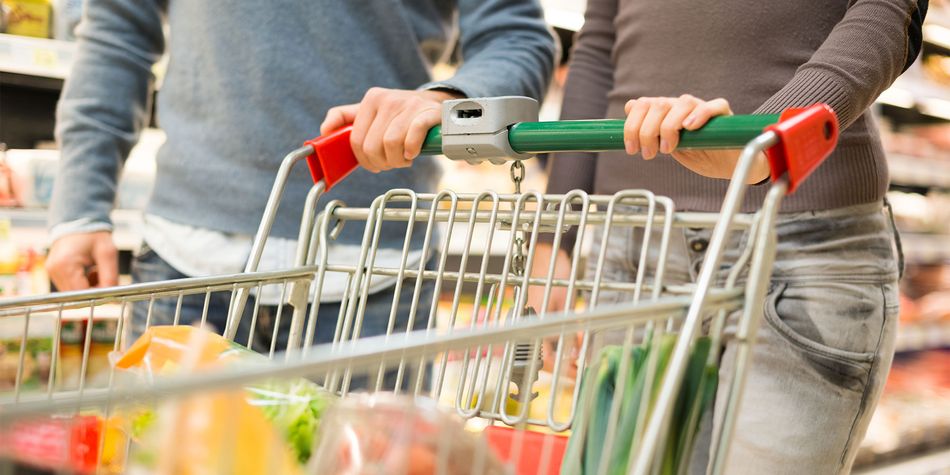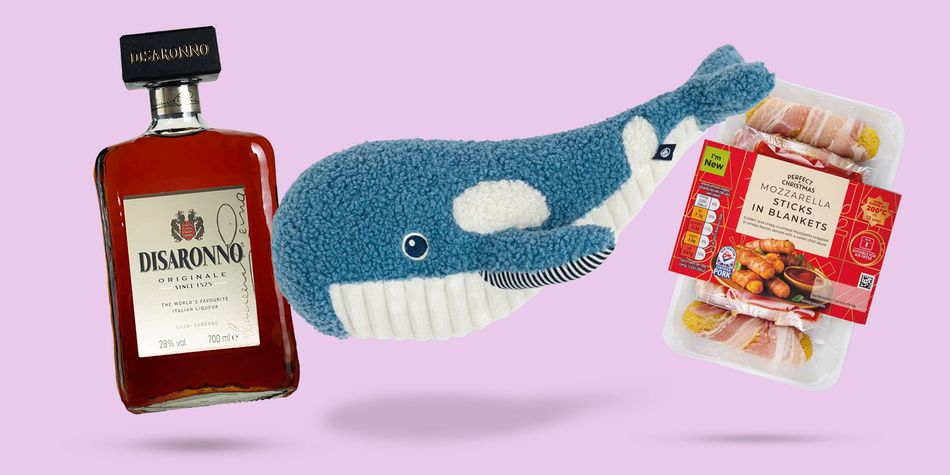By clicking a retailer link you consent to third-party cookies that track your onward journey. This enables W? to receive an affiliate commission if you make a purchase, which supports our mission to be the UK's consumer champion.
Shocking finds in supermarket food – animal droppings, jewellery and more

Out-of-place items including jewellery, woodlice and an industrial-sized bolt have been found in supermarket food or drink items, according to a survey carried out by Which?.
After quizzing more than 1,000 Which? members, we uncovered multiple instances of foreign objects making their way into items on supermarket shelves.*
Below, we take a closer look at the unusual items our members have found. Plus, you'll find expert advice on what to do if you have bought a recalled product.
To help you stay in the know about major recalls of food, products and appliances, visit our product recalls page.
Eat well, live better and stay healthy. Sign up for our free monthly Food & Health newsletter
Shoppers share their stories
Asked if they had ever found something in a food or drink item from a supermarket that shouldn’t be there, 12% of respondents said yes.
Among the more eyebrow-raising finds were an industrial-sized bolt in some packaged fish, a fly in a packet of crackers, as well as woodlice, jewellery and animal droppings in various other food purchases.
Members also reported coming across items such as a caterpillar, a splinter of wood in salted peanut and 'a very large lump that could have been gristle or tendon in a meat pie.
One Which? member told us that they had found a bone in their cereal, while another found a piece of granite in a chocolate bar. A spider’s web in a bag of flour was also mentioned, along with more common items, including hair, insects and pieces of plastic.
Of the members who responded to the survey – which didn't relate to any specific supermarket, products or time period – 3% said they had purchased a food or drink item that had gone on to be recalled.
Meanwhile, just 2% of respondents reported being directly notified by the supermarket about a product recall, and less than half have spotted recall notices in-store. Around half of the members surveyed told us that they would like or expect to be contacted by the retailer in the event of a recall.
Members suggested ways supermarkets could contact them or alert them to a recall would be via social media, email or text if that information was available to retailers via loyalty card schemes. Some 79% of respondents said that they had seen a news story or social media post about a food recall.
None of those who responded said they had subsequently gone on to be ill as a result of consuming a recalled item.

Stay on top of the latest product recalls
To help you stay in the know about major recalls of food, products and appliances, our experts maintain an alerts page the latest product recalls from Which?.
Here, we highlight items being recalled by major brands and products that pose a risk to members of the public.
Tina Potter, head of incidents at the Food Standards Agency (FSA), said: 'If unsafe food has reached the market, the FSA will work with the food business and partners to ensure swift action is taken to ensure it’s removed – and we’ll publish an alert to inform consumers.'
She said consumers could report any food safety concerns to the local authority where the food business is based, so they could investigate further.
'I also encourage people to sign up to our food alerts, which notify consumers if unsafe products have reached the market and what action needs to be taken.'
The British Retail Consortium (BRC), the trade association for UK retailers, said it was unable to comment as Which? hadn't shared the survey prior to publication.

‘If you buy something that doesn’t look or taste right, it’s always worth notifying the retailer.
'In our expert taste tests, we sometimes come across faulty or out-of-date products that have to be discounted from the test, such as wines or olive oils. So if you buy something and it doesn’t taste how you’d expect it to, don’t be afraid to speak up.'
Jess Carson, Which? food and health editor
Other useful resources
- Food Standards Agency (FSA) Food and allergy alerts. You can subscribe for free to receive notifications by email or text message.
- Chartered Trading Standards Institute (CTSI) Product recalls and safety notices for goods sold in-store and online.
- Product Safety Alerts, Reports and Recalls (gov.uk) A government page managed by the Office for Product Safety and Standards (OPSS).
- Electrical Safety First Electrical product recalls.
- Safety Gate The EU rapid-alert system for dangerous non-food products.
Note that most major supermarkets will also have their own product recall pages on their websites.

Our expert taste tests
We take testing seriously, whether it's a £1,000 gadget or a tin of baked beans.
Our extensive taste tests cover everything from red wine and dark chocolate to meal kits from the likes of Hello Fresh and Gousto.
We are editorially independent. We're not influenced by third parties and we don't accept freebies from product manufacturers or retailers – we buy everything we test, where possible, from the shops just like you would.
Explore some of our guides below:
- Best Buy food and drink We reveal the best-value supermarket food and drink from our independent taste tests. Our taste tests are always conducted blind, so tasters don't know which product they're trying, to eliminate the possibility of bias.
- Best tea bags Discover the supermarket tea that came top for taste, and how the big brands compare.
- Best champagne We asked a panel of independent wine experts to blind taste supermarket champagnes.
- Best extra virgin olive oil Our experts uncovered two top-scoring olive oils that pack a punch for flavour and quality, plus an impressive cheaper bottle that outshone pricey rivals.
- Best roast potatoes On a mission to find the tastiest roasties, we recruited a 65-strong consumer panel for our blind taste test.
- Best premium gin Focusing on gins that were a step up in price from entry-level options but still largely available in supermarkets, we asked a panel of experts to blind-taste and rate them to find the best. One brand stood out above rivals by a clear margin.
Alternatively, see an overview of all of our food and drink advice guides.
You might not know that Which? is a not-for-profit organisation. The money we make goes directly back into our testing and our efforts to protect consumers and to make their lives simpler, fairer and safer.
Our charitable arm, the Consumers' Association, works tirelessly to champion the interests of consumers to government, industry and beyond. You can find out more in our guide to how Which? works.
*Survey of 1,154 Which? members conducted in January 2024.




